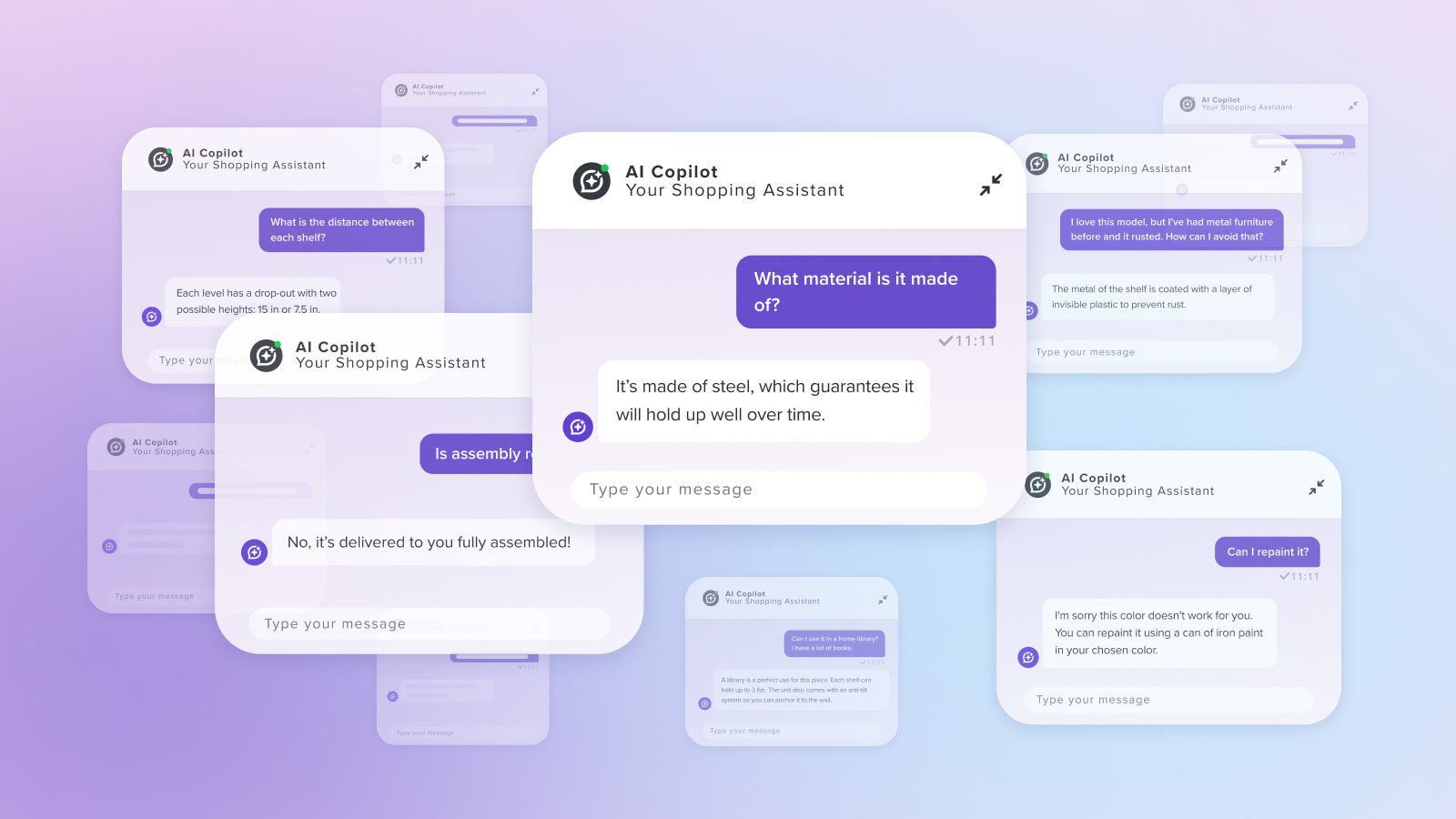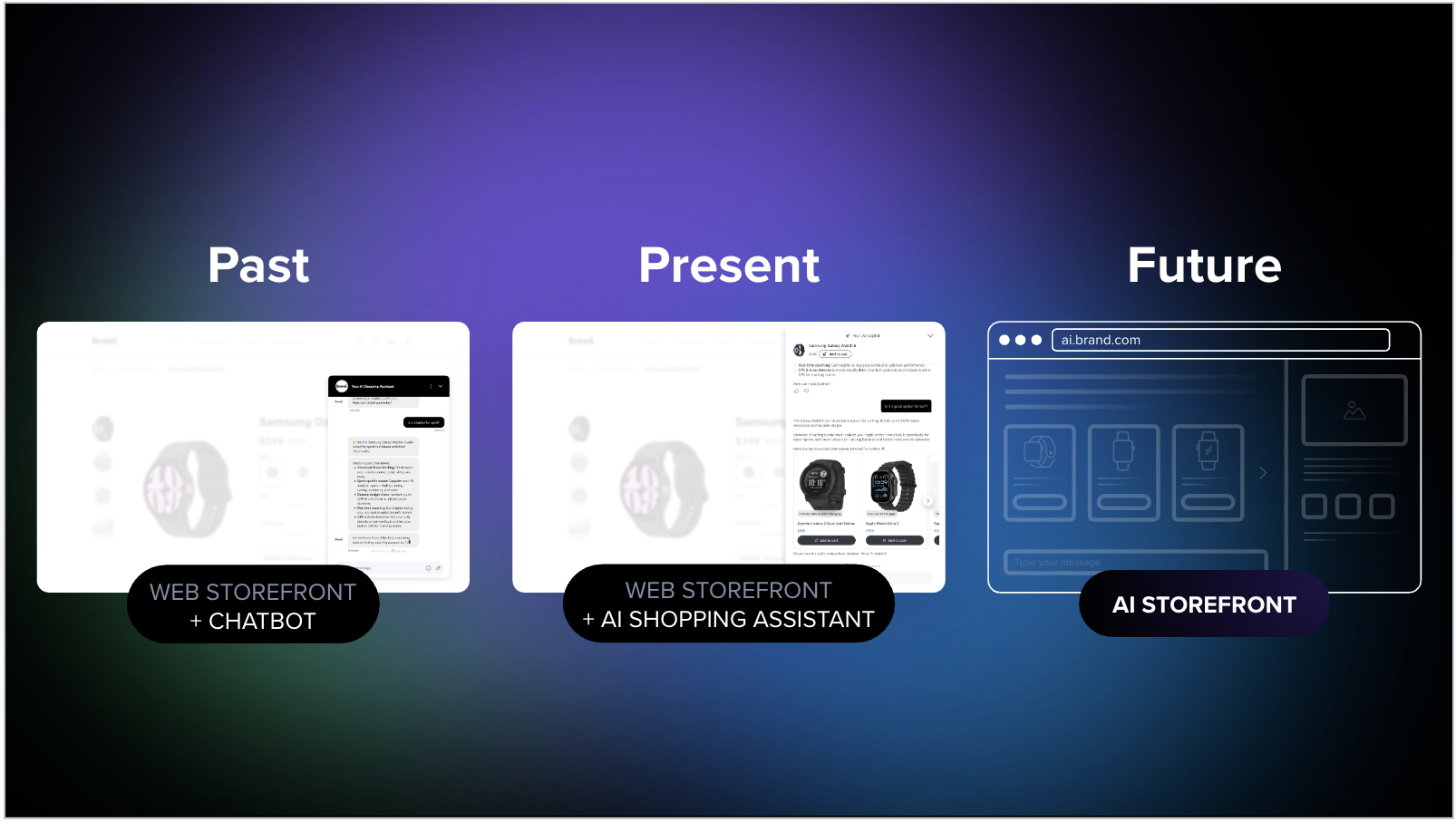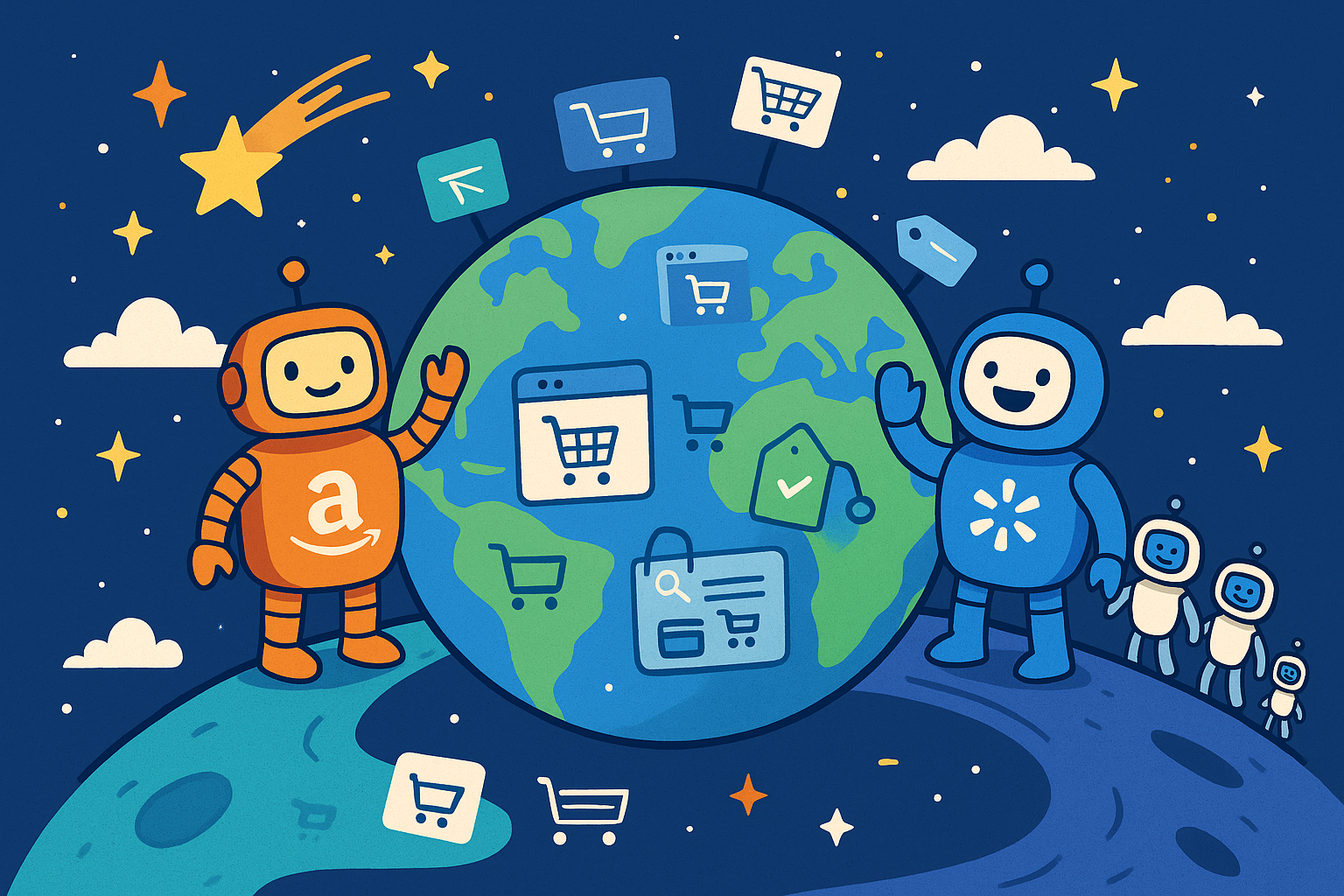Agents in Artificial Intelligence: Vital Custom Support Solutions
iAdvize

Generative artificial intelligence (AI) is already having a profound impact within the customer service sector. Unlike other forms of AI, this particular type can provide personalized answers and recommendations based on new sets of data, resulting in a more organic end-user experience. These clever algorithms are much more than simple strings of code. They've evolved into conversational agents that can deliver relevant, tailored advice in real time.
Understanding Artificial Intelligence Agents
These highly advanced chatbots are sometimes referred to as "artificial intelligence agents", but no matter what you call them, appreciating how they function and the unique types that exist is critical to leveraging them successfully in business.
Definition of AI agents
Simply stated, any type of artificial intelligence agent is a program which can function within a predefined environment (such as a chatbot), make informed decisions, and achieve a specific goal. Note that they can work autonomously or in collaboration with humans. There are also different types of agents based on how they function, and the level of automated support they are able to provide.
Types of AI agents
The sheer size of the customer service sector clearly indicates that AI software needs to adopt a highly flexible edge. So, AI agents can be segmented into a handful of categories. These include:
- Chatbots (programs that simulate human conversations)
- Shopping assistants (chatbots that provide product advice based on product information and customer needs)
- Virtual assistants (in-house systems designed to perform automated tasks such as data entry)
- Agent copilots (assistants designed to increase customer service productivity, to improve customer satisfaction, and to reduce in-house costs)
While each may appear similar at first glance, the main differentiation involves the intended role within existing CRM architecture. Either way, the ability to increase in-house operational efficiency and make complex decisions is the ultimate intention here.
The Evolution of AI Agents
Due to the constant advancement of generative artificial intelligence, the capabilities of these agents has rapidly evolved. The initial iterations came in the form of reflex agents. Traditional agents operated within a fixed environment and were governed by a series of predetermined parameters (such as a set of questions). While they could address numerous tasks, they were still limited in terms of their responses.
Newer versions are sometimes referred to as utility-based agents, as they take the notion of autonomous intelligence to the next level. Not only are they able to identify the goal of an interaction (much like simple reflex agents), but they can determine the most effective way to reach this goal.
This allows intelligent agents to handle more complex tasks thanks to their generative nature. In other words, they are designed to learn from previous experiences, and therefore, to provide much more accurate end-user feedback. This level of flexibility also allows modern artificial intelligence agents to be suitable for a wide range of applications.
The Role of AI Agents in Enhancing Customer Experience
There are many ways in which agents in artificial intelligence can augment and improve customer experiences. Many of these involve the ability to combine accuracy and efficiency so that customer needs are met in a timely fashion. While this observation is likely obvious to the majority of readers, there are also some other inherently unique characteristics that can be leveraged.
How AI agents improve response time and availability
The advanced nature of these learning agents can make informed decisions in a fraction of the time that might otherwise be required by their human counterparts. This same nature allows them to function autonomously, around the clock, serving a greater volume of traffic.
In the event that additional assistance is required, the customer can be immediately redirected to a human representative. This helps to speed up the engagement process, and as the representative will also be provided with data initially obtained by the chatbot, he or she can provide relevant (and informed) solutions to client queries.
Personalization using AI: Tailoring interactions based on customer data
Another crucial benefit of AI learning agents involves their complex nature (once again through the presence of generative artificial intelligence). Not only can they answer common questions, but they have the ability to offer solutions based on previous interactions such as recommending a product in relation to past purchasing trends.
This gives customers a more effective means to address their unique requirements, ultimately resulting in higher levels of customer satisfaction and increased brand loyalty.
Case Studies: Successful AI Agent Implementations in Customer Service
Let's now take a look at a handful of real-world examples of how these systems have already benefited a number of companies.
Sideshow is a website primarily involved in providing unique products to fans of pop culture. The challenge here was to provide automated answers to common customer questions and to reduce frontline volume.
The use of modern agents in artificial intelligence enabled these automated responses to become much more detailed. As a result, Sideshow was able to increase its AI-related conversion rate by five times, and 88% of customers provided positive feedback regarding their chatbot experience.
Payne Glasses was another firm that required bespoke solutions to their customer experience needs. Their key issues included increasing e-commerce conversion rates, reducing the level of inbound queries handled by humans by providing automated answers to common questions, and improving the overall digital shopping experience.
Thanks to the use of intelligent AI agents, Payne Glasses subsequently saw a 50% reduction in the number of requests directed to human representatives, boosting in-house efficiency, and e-commerce conversion rates ten times higher than before.
Fashion brand, IKKS, is another example. In this instance, increased customer volume dictated the need for a more innovative chatbot than the one they had. Their team turned to generative AI chatbots.
This resulted in 24/7 client management, tailor-made responses to individual questions, and the ability to funnel 52% of all requests through automated chat services.
The addition of the generative AI shopping assistant allowed IKKS to focus its efforts on other core competencies like marketing, sales pipelines, and product development.
Key Features of Effective AI Agents
The real-world benefits associated with contemporary customer service agents in artificial intelligence are clear. Still, some are more effective and flexible than others. A handful of characteristics tend to define those which are capable of delivering targeted results.
Real-time interactions
Clients now expect their questions to be addressed in a timely fashion, generally in under two minutes. However, studies have also shown that they're willing to wait slightly longer if the responses they receive are more accurate.
Generative AI chatbots satisfy both requirements. Automated learning agents can provide 24/7 support while enhancing the quality of real-time interactions. Product information, billing questions, and FAQs can all be addressed within an efficient customer experience strategy
Multi-channel support
The perception of uniformity helps to enhance the appeal of any brand. Learning agents can now be embedded throughout numerous portals like standalone websites and dedicated smartphone applications. Not only will this provide customers with a seamless way to access support, but it also helps to boost overall levels of engagement.
Analytics and reporting for continuous improvement
Continuous quality improvement is yet another facet of the evolving e-commerce industry. It is much better to ask "how are we doing?" as opposed to "how did we do?".
Intelligent chatbot agents are able to supply vital information that can be used to determine when areas require improvement. Stakeholders can then take the appropriate actions, define changing goals, and track their progress with a greater degree of operational insight.
Best Practices for Implementing AI Agents
Not all AI agents are created equally, and therefore, it is important to understand how they should be leveraged most effectively. In this case, identifying a handful of core metrics is the most logical approach, saving time and ensuring that the proper decisions are made.
Identifying the right use cases for AI agents in business
Certain agents in artificial intelligence can be used as customer-facing interfaces, representing one of the initial points of contact. Others may be employed as a copilot that augments human agents, increasing their handling volume and overall productivity. These choices are ultimately determined by the business and their goals.
Ensuring seamless integration
Integration is another critical area to consider. Even the most advanced agents in artificial intelligence are of little use if they cannot be incorporated into an existing customer experience ecosystem. This level of scalability also helps to expedite any type of in-house orientation, and to ensure that customer satisfaction is not sacrificed during the employee on-boarding process.
Connection to company's or website owned data
In the past, traditional model-based agents often suffered from AI hallucination; a situation when false in-house information resulted in inaccurate responses. Intelligent goal-based agents are able to differentiate between spurious information and data derived from trusted in-house sources.
This ensures more accurate results, higher levels of customer satisfaction, and fewer chances that engagement pipelines will be negatively affected.
The Growing Importance of AI Agents
To be perfectly clear, even the most advanced agents in artificial intelligence are not intended to remove humans from the equation. They are instead meant to be employed as a way to enhance the customer experience, and to dramatically streamline day-to-day operations. Let us also remember that the digital landscape is highly competitive. Whether referring to the massive e-commerce sector, or niche markets such as healthcare, clients expect personalized solutions. This is why generative AI chatbots are critical for digital success going forward.
Would you like to learn more about the increasing relevance of AI agents? Do you have questions regarding the observations outlined above? If so, please contact iAdvize directly, or book a demo of our products.

.png)
.png)








